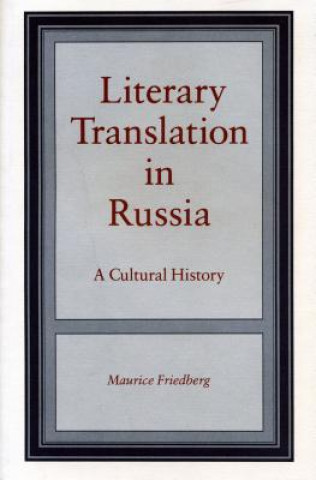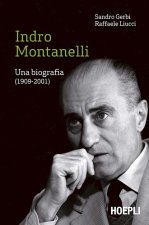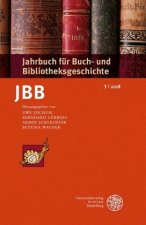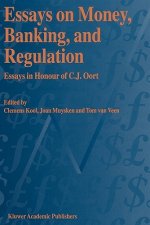
Doručení
Nákupní rádce





Nehodí se? Vůbec nevadí! U nás můžete do 30 dní vrátit
 Dárkový poukaz
V libovolné hodnotě
Dárkový poukaz
V libovolné hodnotě
S dárkovým poukazem nešlápnete vedle. Obdarovaný si za dárkový poukaz může vybrat cokoliv z naší nabídky.
Literary Translation in Russia
 Angličtina
Angličtina
 98 b
98 b
30 dní na vrácení zboží
Mohlo by vás také zajímat


This study provides a great deal of interesting and important information on literary translation as an international phenomenon, in its aesthetic, social, and cultural dimensions. It will be of value not only to the specialist on Russia but also to scholars and students in the broad field of comparative literature.-Deming Brown, author of The Last Years of Soviet Russian Literature: Prose Fiction, 1975-1991In this rich historical study, Maurice Friedberg recounts the impact of translation on the Russian literary process. In tracing the explosion of literary translation in nineteenth-century Russia, Friedberg determines that it introduced new issues of cultural, aesthetic, and political values.Beginning with Pushkin in the early nineteenth century, Friedberg traces the history of translation throughout the lives of Dostoevsky, Tolstoy, and, more recently, Pasternak. His analysis includes two translators who became Russia's leading literary figures: Zhukovsky, whose renditions of German poetry became famous, and Vvedensky, who introduced Charles Dickens to Russia. In the twentieth century, Friedberg points to Pasternak's Faust to show how apolitical authors welcomed free translation, which offered them an alternative to the original writing from which they had been banned by Soviet authorities.By introducing Western literary works, Russian translators provided new models for Russian literature. Friedberg discusses the usual battles fought between partisans of literalism and of free translation, the influence of Stalinist Soviet government on literary translation, and the political implications of aesthetic clashes. He also considers the impetus of translated Western fiction, poetry, and drama as remaining links to Western civilization during the decades of Russia's isolation from the West. Friedberg argues that literary translation had a profound effect on Russia by helping to erode the Soviet Union's isolation, which ultimately came to an end with the dissolution of the Soviet Union in 1991.
Informace o knize
 Angličtina
Angličtina




 Jak nakupovat
Jak nakupovat


























